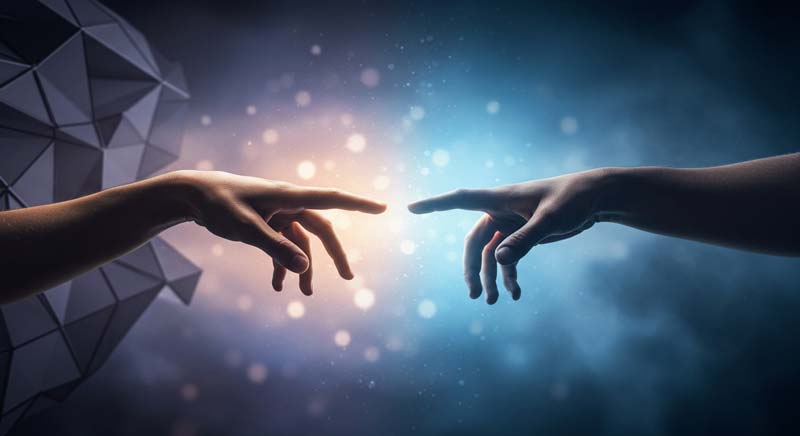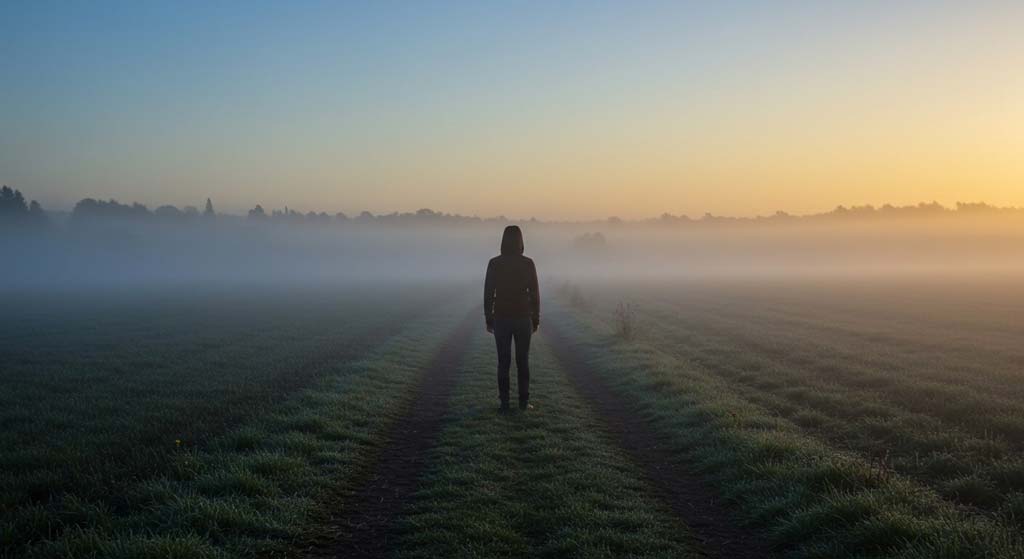Certainty and fear often appear unrelated, yet both silently erode the foundations of what truly matters in our lives. Sometimes, meaning finds me months apart from places I never expected. Watching a film and reading a devotional revealed the same profound truth in two seemingly unconnected moments.
In February, I found myself absorbed in the film Conclave, following the complex process of electing a new Pope. During a pivotal scene, Ralph Fiennes delivers a speech that made me reach for the remote. I rewound, listened again, then again. His words struck something deep within me:
There is one sin which I have come to fear above all others. Certainty. Certainty and fear of being wrong drives people apart. Certainty is the great enemy of unity. Certainty is the deadly enemy of tolerance… Our faith is a living thing precisely because it walks hand-in-hand with doubt. If there was only certainty and no doubt, there would be no mystery, and therefore no need for faith.
The words lingered with me for days. The concept that certainty and fear of being wrong could destroy unity felt viscerally authentic. I noted it mentally but moved on with life.
Three months later, while reading “The Word for Today” on a quiet morning, another passage stopped me cold:
If you want to grow, you need to get over any fear you may have of making mistakes… Fear is the enemy of growth… If you have to find ‘the best way’ or ‘the perfect way’, you will never get anywhere. It’s like driving on an unknown road at night. Ideally, you would like to see your entire route before you start out. Instead, you see it little by little.
Instantly, my mind flashed back to Fiennes’ words from Conclave. The connection was immediate and electric. Both passages warned of enemies – certainty and fear – that destroy essential human experiences: unity and growth.
Certainty and Fear: Twin Enemies of Human Flourishing
CERTAINTY
- Builds rigid walls that exclude different perspectives
- Values being “right” over being connected
- Eliminates room for doubt and mystery
- Fractures relationships and communities
FEAR
- Creates paralysis in the face of uncertainty
- Prevents movement into unknown territories
- Avoids mistakes at the cost of learning
- Keeps us trapped in comfortable limitations
The Common Denominator: Uncertainty
What struck me most powerfully was the common foundation beneath these warnings. Both certainty and fear are reactions to the same fundamental reality: uncertainty.
Certainty is like a castle we build to shield ourselves from uncertainty’s discomfort. We construct rigid walls of belief, allowing no questions or alternatives. Consequently, we shut out different perspectives and the people who hold them. Unity crumbles as we elevate being “right” above being connected.
Fear, meanwhile, is like quicksand that paralyses us in the face of uncertainty. When unsure about outcomes, we freeze, unwilling to act without guarantees. Growth becomes impossible because growth requires movement into unknown territories.
Think of certainty and fear as two sides of the same coin. One faces uncertainty with rigid overconfidence, the other with paralysing dread. Both responses ultimately diminish our lives.
I find this particularly meaningful because I’ve witnessed both destroyers at work. I’ve seen how rigid certainty and fear of compromise have fractured relationships and families. The legal system often rewards the most certain, not the most correct or compassionate. This rigidity breaks bonds that should remain unbroken.
I’ve also felt fear’s paralysing grip firsthand. After profound personal losses, I’ve experienced moments where fear of further pain made even small steps forward seem impossible. Depression thrives in this paralysis, making certainty and fear partners in preventing healing.
Yet these two moments—the film and the devotional—reminded me of something vital. Uncertainty isn’t the enemy, but our harmful responses to it are.
What if, instead, we embraced uncertainty as necessary? What if we saw doubt not as weakness but as wisdom? What if mistakes weren’t failures but simply “another way of doing things”?
Uncertainty feels like standing at the edge of a vast, foggy field. Certainty and fear would have us either claim we can see what we cannot or refuse to step forward. But perhaps true courage means walking forward with open hands, admitting we don’t know everything, yet moving anyway.
In my darkest moments, healing began not when I found certainty or conquered fear but when I acknowledged uncertainty and stepped forward despite it. Growth doesn’t happen in spaces of perfect knowledge but in the foggy in-between. Unity isn’t built on agreement about everything but on mutual recognition of our shared unknowing.
The most profound human connections arise not from certainty and fear but from vulnerability, the willingness to say, “I don’t know,” “I might be wrong,” or “I’m afraid, but I’ll try anyway.”

In uncertainty, we find unity through shared vulnerability. We see growth through humble movement. In uncertainty, painful and uncomfortable as it is, we find life itself.


